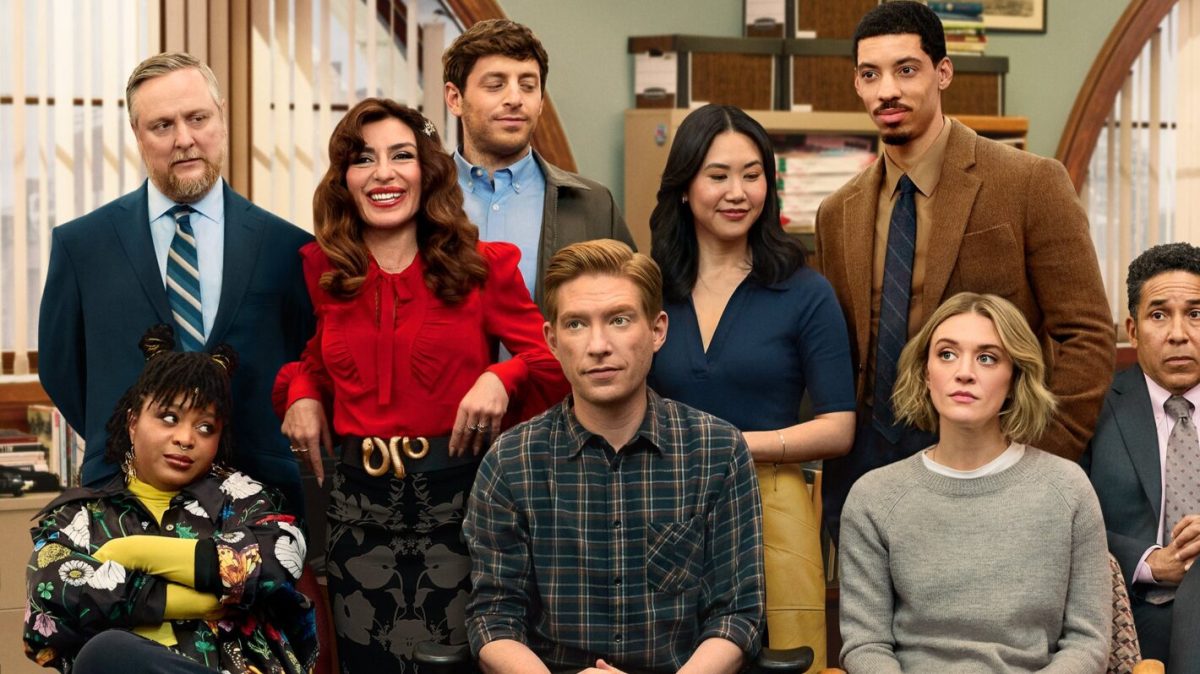
Promotional Image from Peacock
The overproliferation of spinoffs, sequels, and remakes in pop culture today deteriorates cinematic creativity. This point has been made so many times that for me to rehash it here would be itself an unnecessary spinoff.
When I heard that there would be an Office spinoff set at a dying local newspaper, The Toledo Truth-Teller, I was partly curious about how journalism would be portrayed, and partly dreadful of a spinoff that could never live up to the original(s). However, The Paper impressed me over the course of its ten-episode run by taking an original approach to derivative content.
The connections between The Paper and The Office are loose at best—the same fictional documentary crew is covering another dying business, this time in Toledo, Ohio, instead of Scranton, Pennsylvania. Only one named character, Oscar, repeats his role from the original show.
Outside of Oscar, it’s a truly new set of characters; nobody can be easily dismissed as a knockoff Michael, Jim, or Pam. Leading actor Domhnall Gleeson’s character, Ned, is both a bright-eyed idealist and a serious, competent leader—a combination that never really appeared at Dunder Mifflin.
At the outset, The Paper is meaningfully less funny than The Office: the pilot episode is particularly slow-paced, and the long spaces between jokes do not effectively replicate the cringe comedy of the original. But as the characters settle in over the course of the season, the show improves both its comedic quality and joke-density, crossing the line into laugh-out-loud hilarity.
The Paper successfully avoids being stuck in the shadow of its progenitor, but the state of journalism today looms large over the entire show.
The economic decline and hollowing-out of the Rust Belt constantly surrounded Dunder Mifflin, which faced a future of irreversible decline. But the show more so hinted at this fact—occasional plots featured layoffs, branch closings, or corporate mergers—rather than placing it front and center. In The Paper, the grim fate of small local newspapers is not in the background; it’s the point of the show.
For this reason, The Paper leans into more scathing social critique than the original Office: jokes, or even entire episodes, target online clickbait, popup ads, affiliate marketing, large corporate ownership, independent blogs, and the downsizing of offices—at the start of the season, there is only one full-time reporter at the Toledo Truth Teller.
When the show harkens back to the age of prestigious local newspapers, usually through Ned’s mockumentary talking head interviews, the script brims with nostalgia and reverence. Occasionally, an episode will cut to a clip from a fictional 1971 documentary called Newspaper, which boasts of a time when Toledo’s paper filled a multi-story building and kept full-time reporters in New York and D.C.
As such, The Paper is a sitcom in mourning, written with deep care for its subject matter. But while the everpresence of journalistic decline leads to a slow start, the season ends on a high note and adds up to a worthwhile watch for any Office fan.